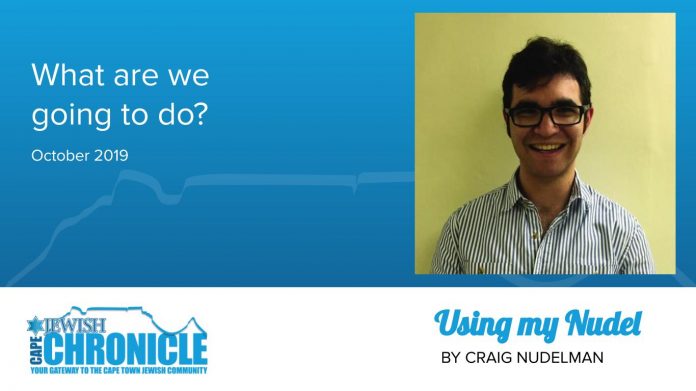In the wake of the murders of 19-year old UCT student Uyinene Mrwetyana and countless others in August (which is ironically Women’s Month) I feel the need to write about the state of women in South Africa.
It has been a few days of intense national grief, as well as personal existential questions. The one question that I keep coming back to is ‘what are we going to do?’. But first let’s unpack some things.
Stats SA defines femicide as “The intentional killing of females (women or girls) because they are females.” I think we can agree that femicide is rife in South Africa — and the statistics which prove it are beyond appalling. Tom Head makes a comparison between Italy and France, and South Africa to illustrate the crisis we are currently in. He says that Italy, where 106 women were killed in 2018, has launched a Code Red emergency to tackle femicide. Their femicide is 0.11 victims per 100 000 women. France, similarly, has begun a massive audit of its police stations and put millions of Euros into the fight against their rate of 0.18 female victims per 100 000.
South Africa’s rate is staggering compared to this. Stats SA and the South African Police Service estimate that our rate 15.2 in 2017/18. It puts South Africa in the top 5 countries for most murders of women; our femicide rate is five times the global average. Head states that our rate is so severe, one can calculate that a woman is murdered every three hours. That means that during an average school day, from 08:00 to 15:00, 2 women are murdered, just for being women. This does not take into account rape or violence against women. South Africa has been labelled ‘the rape capital of the world’ with Stats SA stating that 250 per 100 000 women are raped, based on 2016/17 statistics.
Where is our Code Red? The government did respond the day after the death of Uyinene was confirmed. It tweeted the following: “Violence and abuse against women have no place in our society. Govt is calling on women to speak out, and not allow themselves to become victims by keeping quiet. Women who speak out are able to act, effect change and help others.” I was flabbergasted when I read this. This government statement implies that it is a woman’s responsibility to change. That they have to shout louder and stop being quiet about the issue? Why is it a woman’s job to make sure she isn’t raped or murdered? Someone tweeted a corrected version that the government should have said, “Violence and abuse by men have no place in our society. Goverment is calling on men to speak out, and not allow themselves to create victims. Men who speak out are able to act, effect change and help others.” The onus is not on women. It is on men to speak out and act conscionably.
Why is South Africa such a violent place, filled with anger towards the other, not just women? As I write this, Zambia has just cancelled their friendly football match against South Africa, and Nigeria is asking for sanctions against South African companies. In the Daily Maverick, Professor Loren B Landau from the African Centre for Migration and Society at Wits spoke about xenophobia and why it is so prevalent in post-apartheid South Africa. She stated, “Xenophobia is a manifestation of South Africa’s real and enduring problems: inequality, insecurity, and institutional incapacity. Perhaps more importantly, it reveals a political class willing to adopt or endorse the language and modalities of street-level gangsters. It shows that our main political parties, the ANC and the DA, are out of ideas and seeking to deflect blame rather than deliver.”
We live in an angry country. Kgaugelo Masweneng wrote last year that some of the reasons for femicide relate back to issues affecting men in our country. Where one has easy access to guns and a society where lawlessness is rife, violence against women is more likely to occur. Put that together with high unemployment and an inferiority complex in men because of it, there’s no wonder that women are at such a high risk at being targeted because they are women.
I hope that society continues to take this issue seriously. People have the tendency to forget issues affecting them in the short term. Uyinene’s death will become a thing of the past, as will so many others. Our politicians will make statements and say they are going to enforce more penalties to people who commit acts of gender-based violence. But will it last? I hope that by writing this column and people, hopefully, reading this at the beginning of October, this issue will not go unnoticed. I want my wife, daughters, and all the amazing women I know to grow up in a world where crime against women, because they are women, is not tolerated.
I hope that this Yom Kippur we atone on behalf of society and we commit not to let this issue drift away, but to continue thinking about the right thing to do, the right thing to say, and the right way to behave.
G’mar Chatima Tova and may you have a truly meaningful fast.
To download a PDF of the Chronicle for October, click here
To read the editor’s column this month, titled ‘Why we need more difficult females’ click here
To read the most read story online in September, click here











